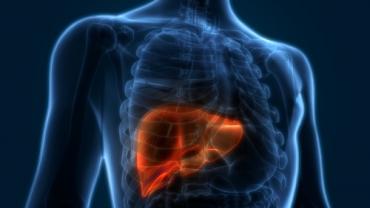
Fatty liver disease and non-alcoholic steatohepatitis (NASH) are increasing epidemics in the U.S. and the rest of the world. They are the leading causes of abnormal liver enzymes and are associated with diabetes and obesity. Long term hyperglycemia causes an increase in the synthesis of fatty acids and triglycerides in the liver leading to fatty liver.
At this time there are few guidelines for diagnostic and follow-up methods and limited proven treatment options. Previous research of pharmacological agents to treat nonalcoholic fatty liver disease (NAFLD) were performed with poor results.
According to a new review, researchers investigated the role of nutrition and the effects of dietary supplements including vitamins, DHA, and probiotics in children with nonalcoholic fatty liver disease.
Insulin resistance is one of the key factors in the development of NAFLD, and the gut-liver axis plays a significant role as well. Gut dysbiosis and intestinal hyperpermeability lead to liver damage via proinflammatory responses.
Numerous studies have demonstrated low polyunsaturated fat intake and the development of pathogenesis of NAFLD. In addition, supplementation with fish oil was associated with mitigating the disease process and improving lipid markers and insulin resistance in children with NAFLD. Fish oil supplementation restores insulin sensitivity and exerts anti-inflammatory actions. It is recommended that children with NAFLD take a fish oil supplement. Most of the studies used a DHA supplement at 250 mg to 500 mg per day.
Probiotics help restore gastrointestinal barrier function, modulate the immune system, and inhibit the proliferation of harmful bacteria. Probiotics have been shown to reduce liver fat and improve liver enzymes. Probiotics are likely most effective by preventing bacterial translocation and reducing the effects of pathological intestinal microbiota on the liver.
It is essential to encourage a restricted carbohydrate diet and exercise to support weight loss in these individuals. However, because disease is already established, there are increased nutritional demands beyond that which could be obtained from diet alone. Therefore, dietary supplements, including fish oil and probiotics, should be considered to mitigate the pathogenesis of NAFLD.
By Michael Jurgelewicz, DC, DACBN, DCBCN, CNS